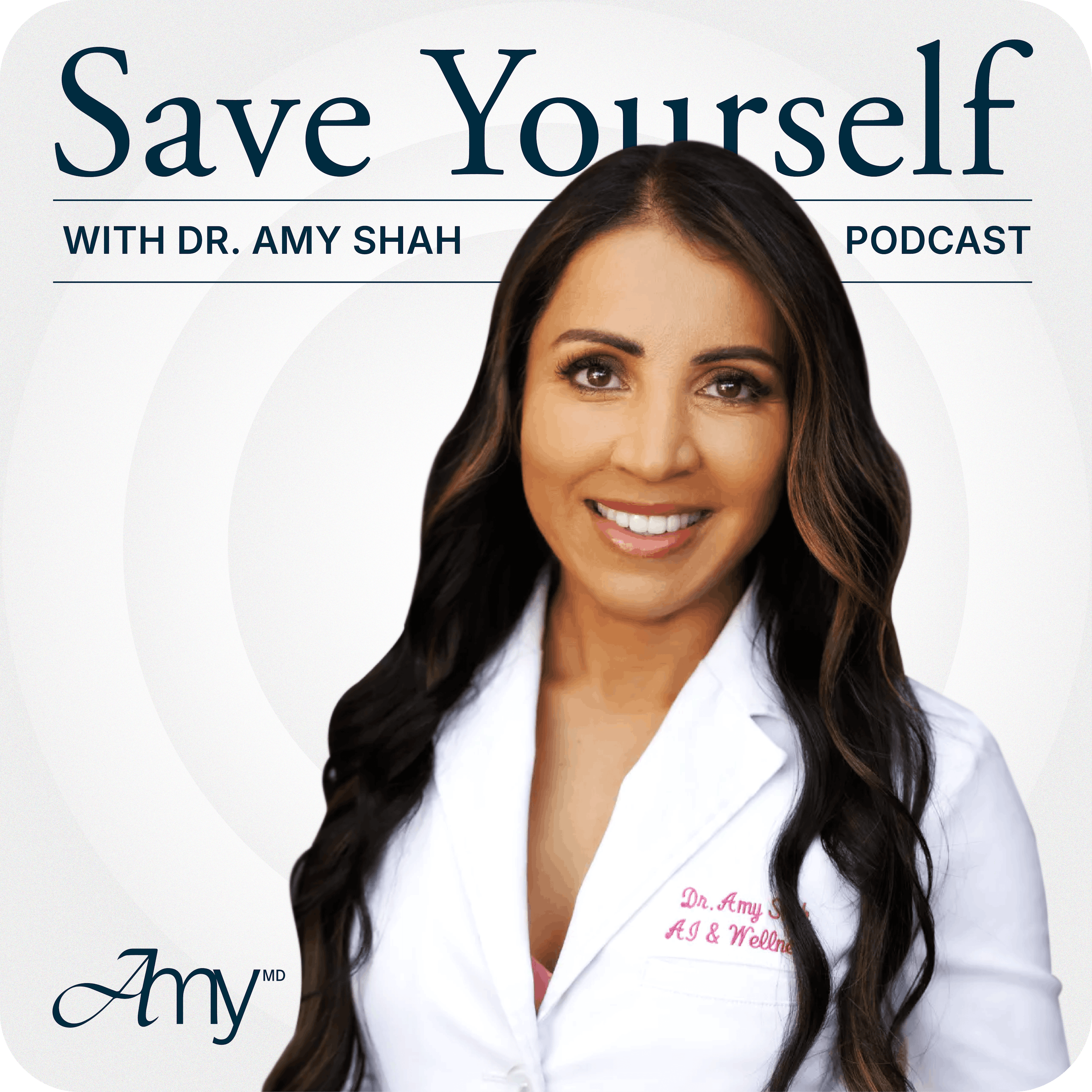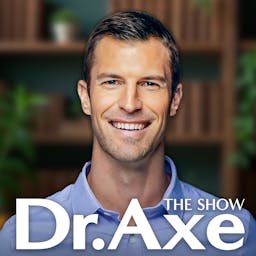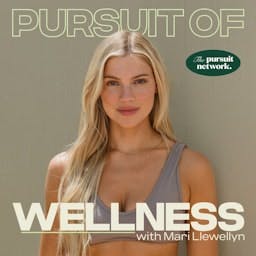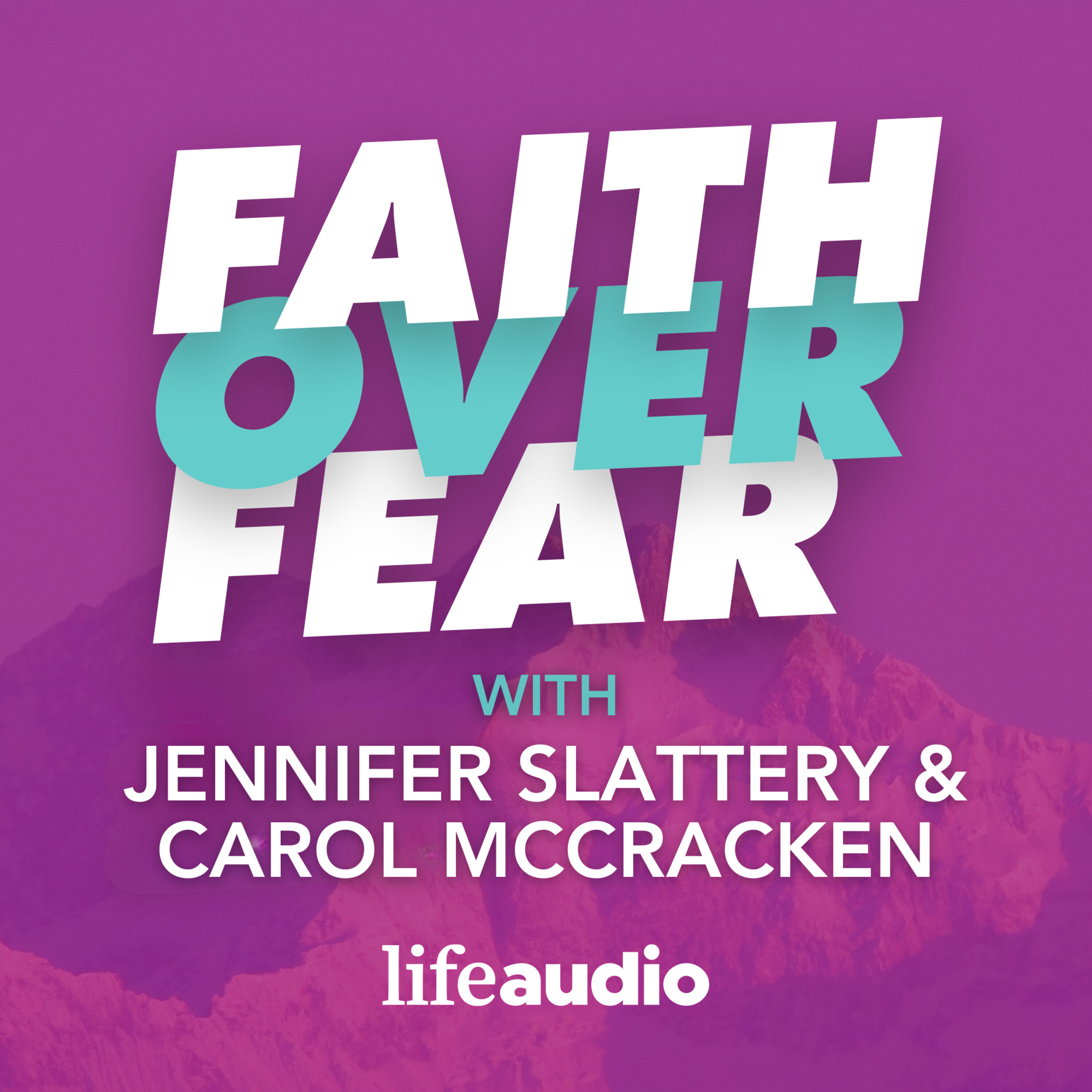.jpg)
Mindfully Integrative Show
Welcome to the Mindfully Integrative Podcast! We are dedicated to featuring inspirational and successful individuals who have embraced mindful investing to achieve optimal integrative wellness. Our podcast dives into all aspects of mindfully incorporating integrative functional health into our lives, aiming to help create a more balanced and fulfilling life. New episodes are released every Friday and cover a wide range of informative and entertaining topics, interviews, and discussions.
We explore a mindful approach to the mind-body connection with guests discussing various topics in integrative holistic health. This includes areas such as whole health, functional medicine, spiritual health, financial health, mental health, lifestyle health, mindset shifts, physical health, digital health, nutrition, gut health, sexual health, body positivity, family health, pet health, business health, and life purpose, among others.
Dr. Damaris G. is an Integrative Doctor of Nursing Practice, a Family Nurse Practitioner, a mom, and a veteran. For collaboration, interviews, or to say hi, you can contact her via email at damaris@mindfullyintegrative.com. You can also find her on LinkedIn at or https://www.linkedin.com/in/damarisdnp/. To join our membership and access resources, visit our website at https://mindfullyintegrative.com .
Please note that the information shared here is for informational and educational purposes only and should not be considered medical advice. Always consult with a physician or other licensed healthcare provider when making healthcare decisions. Enjoy the podcast!
Mindfully Integrative Show
Transforming Chaos into Calm: Parenting Strategies for Children with ADHD
Discover how to transform the chaos of parenting children with ADHD into a structured, nurturing journey that fosters growth and joy. Guided by Dr. Damaris Grossman's book "Parenting with Patients," we unravel the complexities of ADHD and learning differences, offering concrete strategies to tackle these challenges. Learn about the transformative power of visual schedules, breaking tasks into bite-sized steps, and engaging multiple senses through multisensory learning to create a stable environment for your child. Explore the importance of support networks, and learn how you can leverage community and professional resources for a more balanced parenting experience.
Parenting isn't a destination—it's an evolving journey where patience with both your child and yourself is essential. We delve into personalized approaches that honor the uniqueness of every family, embracing the philosophy that there is no one-size-fits-all solution. Our conversation underscores the value of self-care for parents, celebrating small victories, and nurturing your own well-being as you guide your child. Join us in fostering an environment of patience and compassion, and hear from others who are navigating similar paths. We're grateful for your engagement and look forward to your questions and insights in future episodes.
Sponsor Affiliates
Empowering Wellness Through Evidence-Based Education
Get YOUR Own
Joburg Protein Snacks
Discount Code: Damaris15 Or Damaris18
Feeling need to Lose Weight & Become metabolically Healthy
GET METABOLIC COURSE GLP 1 REseT
This course is designed for individuals looking to optimize their metabolic health through integrative and functional medicine approaches. Whether you're on a GLP-1 medication or seeking natural ways to enhance your metabolic function, this course provides actionable steps, expert insights, and a personalized roadmap sustainable wellness.
Are you feeling stressed, tired, or Metabolism imbalanced?
Take advantage of our free mindful steps to help improve your well-being.
ENJOY ONE OF our Books
Mindful Ways Health Wealth & Life
https://stan.store/Mindfullyintegrative
Join Yearly membership ALL IN O...
Hey everyone, Welcome back for another deep dive.
Speaker 2:Always happy to be back.
Speaker 1:This time we're tackling a topic that I have a feeling hits home for a lot of our listeners Parenting kids, specifically kids with ADHD, and learning differences.
Speaker 2:Right.
Speaker 1:We've got Dr Damaris Grossman's book Parenting with Patients as our guide and let me tell you there are so many practical strategies in here, not just for the kids but for the whole family to use.
Speaker 2:Yeah, it's fascinating how often this comes up. You know, and yet I think there are still so many misconceptions about ADHD and learning disabilities, and what we're hoping to do today is really unpack some of those actionable takeaways in Dr Grossman's book and hopefully offer a few aha moments.
Speaker 1:I love it Okay, so before we get into all that, let's just start basic. When we talk about ADHD and learning disabilities, what are we talking about?
Speaker 2:So think about it this way Imagine your brain is like a web browser. With ADHD, it's like having like 20 tabs open.
Speaker 1:Okay.
Speaker 2:Videos playing on all of them, pop-up ads galore and focus and impulse control. They've left the chat, they're gone Now. Learning disabilities are a different beast altogether. They affect how your brain processes information. So take dyslexia, for example. Reading becomes like a real uphill battle.
Speaker 1:Yeah.
Speaker 2:But and here's where it gets really tricky Right ADHD and learning disabilities often go hand in hand.
Speaker 1:Right.
Speaker 2:And that means that families are navigating multiple, multiple challenges.
Speaker 1:Oh, absolutely, and that that actually is a perfect segue into why Dr Grossman's emphasis on structure is so important, and it's one of those things that seems very simple on the surface, but when you're dealing with these challenges, it makes a world of difference.
Speaker 2:Absolutely it's. You know, imagine you're trying to build a house, right?
Speaker 1:Right.
Speaker 2:But you don't have a blueprint, you don't have any foundation. Right? That's what it's like for a child with ADHD to try to navigate their day without structure.
Speaker 1:Wow.
Speaker 2:Yeah, so it just creates the sense of chaos and unpredictability, which of course just fuels anxiety and makes it incredibly hard to function.
Speaker 1:So it's about creating that stability and predictability, and in the book she talks about visual schedules being really, really helpful.
Speaker 2:Yes.
Speaker 1:It's like having a roadmap for your day.
Speaker 2:Exactly Visual schedules, designated workspaces, even something as simple as breaking down tasks. Yes, kids with ADHD to thrive, you know. Just to give you an example.
Speaker 1:Yeah, give me an example.
Speaker 2:Yeah, let's say, your child has to tidy their room. Which can feel like this utterly insurmountable task?
Speaker 1:Oh, I know.
Speaker 2:So instead of just saying clean your room, you could break it down. First let's put away all the clothes, then we'll tackle the toys and finally we'll make sure all the books are back on the shelf. It's just breaking it down.
Speaker 1:It's manageable, Exactly. And you know what that makes me think that this applies not just to kids, but to us as parents too. I mean, we're juggling a lot.
Speaker 2:Oh, absolutely, and that's where Dr Grossman's emphasis on seeking support really resonates.
Speaker 1:Okay.
Speaker 2:You know she's a big advocate for both professional help but also the power of support groups. And it's not about admitting defeat, it's just recognizing that you don't have to go through this alone it really is.
Speaker 1:It takes a village Speaking of things that can help. I was really intrigued by the section on multisensory learning.
Speaker 2:Yes.
Speaker 1:And I know we've touched on this in other deep dives, right?
Speaker 2:But just to kind of remind everybody what that is and how it applies here, yeah, so multisensory learning is really about engaging multiple senses at once, so sight, sound, touch, even movement you know and think about. When we were kids and learning felt more like playing. You know, we were building with blocks, drawing with finger paints, singing along to our ABCs. That's multisensory learning in action, and it's not just for kids either.
Speaker 1:Well, and you know, and I'm right there with you, I'm a very visual learner, like give me all the colorful diagrams, give me the mind maps, but how does this help, you know, kids specifically with ADHD and dyslexia?
Speaker 2:You know, for kids who learn and think differently, you know those traditional teaching methods sitting still listening to a lecture, reading silently those can be a recipe for disengagement and frustration. Multisensory learning kind of flips the script. It makes learning active, engaging and, most importantly, memorable.
Speaker 1:Okay.
Speaker 2:So, you know, think about teaching spelling words instead of just rote memorization. You know, imagine having your child write the words in shaving cream or create them out of Play-Doh.
Speaker 1:Oh, that's fun.
Speaker 2:Yeah, suddenly spelling practice becomes a sensory experience, not a chore.
Speaker 1:I love that and that actually ties into another thing that she emphasizes, which is time management.
Speaker 2:Yes, and time management is something I think we could, all you know, use a little help with, but it's sparingly crucial, you know, for individuals with ADHD. Absolutely, and I appreciate that Dr Grossman kind of challenges that traditional notion of rigid scheduling which so often backfires for people with ADHD, and instead she really advocates for a more flexible and adaptable approach. So think visual timers, color-coded calendars, breaking down tasks into those smaller chunks and celebrating those small wins along the way.
Speaker 1:Oh, I love that Celebrating the small wins, because you know it's so easy to get caught up in that big picture and forget to just acknowledge those little victories.
Speaker 2:Right.
Speaker 1:That really do make a difference.
Speaker 2:Exactly.
Speaker 1:And you know, it makes me think about the importance of self-care.
Speaker 2:Yes.
Speaker 1:Which she also talks about in the book. Because, let's face it, parenting a child with ADHD learning differences it's demanding.
Speaker 2:It is.
Speaker 1:Emotionally, physically.
Speaker 2:It's a marathon, not a sprint, and you can't pour from an empty cup. And I think one of the valuable takeaways from Dr Grossman's book is this permission that she gives parents to prioritize their own well-being. Okay, and it's not selfish, it's essential, right. And she talks about the importance of sleep, nutrition, exercise. You know, those foundational pillars of self-care that we often neglect, you know we do, we let it slide. Yes, when we're caught up in the whirlwind of daily life.
Speaker 1:Yes.
Speaker 2:But you know, it's not just about checking those boxes off. A to do list.
Speaker 1:Right, right. It's about finding what truly nourishes you.
Speaker 2:Yes, whether that is a hot bath, a walk in nature, 10 minutes of quiet time with a cup of tea. Exactly, it's about tuning into your own needs and giving yourself permission to, to recharge and replenish.
Speaker 1:Yeah.
Speaker 2:Because when you're feeling depleted, it's just that much harder to show up as the patient, present parent that you strive to be.
Speaker 1:That's right.
Speaker 2:And speaking of being present, you know Dr Grossman delves into some fascinating holistic approaches that can be incredibly beneficial for managing ADHD symptoms and just boosting overall well-being.
Speaker 1:Yeah, the whole section on mindfulness, meditation, yoga. Yes, I'll admit I was a little skeptical at first. Sure, I tend to think of those as things that you do, you know, when you go to like a retreat or something like that. Right, not necessarily tools for everyday life, but she makes a really compelling argument for how they can be incorporated.
Speaker 2:Yeah, and it makes sense when you think about it. I mean, mindfulness is all about paying attention to the present moment without judgment. It's like training a muscle the more you practice, the easier it becomes to direct your attention where you want it to go. Okay, and for kids with ADHD, who often struggle with focus and impulse control mindfulness can be a game changer.
Speaker 2:It's like giving them a toolkit to manage all those raising thoughts. Exactly, Exactly. And meditation goes hand in hand with mindfulness. You know. It's about creating that space for stillness, quiet contemplation Right which can be so calming and grounding.
Speaker 1:Especially in our world.
Speaker 2:Oh, absolutely. You know, in our hyper-connected, always-on world, it's so important.
Speaker 1:Yeah, it's so needed. It's funny. I've talked to a lot of parents who say even just five minutes of guided meditation with your kids, maybe before bed, makes a world of difference.
Speaker 2:Absolutely.
Speaker 1:It helps everybody kind of unwind.
Speaker 2:Yes, or bed makes a world of difference, absolutely. It helps everybody kind of unwind, yes. And then there's yoga, which combines, you know, those physical benefits of exercise with the mental and emotional benefits of mindfulness and deep breathing.
Speaker 1:And you know. Speaking of exercise, I remember reading a study that found that even a short burst of physical activity can have a huge impact on focus and attention for kids with ADHD.
Speaker 2:Oh, absolutely.
Speaker 1:Like hitting the reset button.
Speaker 2:Exactly, exactly and beyond the physical benefits, you know, exercise releases endorphins, you know.
Speaker 1:Right, those feel good chemicals.
Speaker 2:Yes, those feel good chemicals that have mood boosting and stress reducing effects.
Speaker 1:Yeah, we need more of those.
Speaker 2:Absolutely so. You know, whether it's yoga, swimming, dancing or just playing tag in the park, encouraging movement and physical activity is so essential.
Speaker 1:How important, so important. And you know, all of this kind of ties back to her emphasis on building confidence from within. Yes, because it's not just about managing the symptoms, it's about helping these kids thrive.
Speaker 2:Exactly, and that starts with reframing how we view success, both for ourselves and our children. You know Dr Grossman really encourages parents to help their kids embrace imperfection.
Speaker 1:Oh, that's so important.
Speaker 2:Yes, it's about celebrating those small victories, you know, no matter how seemingly insignificant, and focusing on progress, not perfection.
Speaker 1:Because when you're striving for perfection, you're just setting yourself up, I think, to feel defeated.
Speaker 2:Exactly, exactly, and that's where fostering self-compassion comes in. It's about treating ourselves and our children with the same kindness and understanding that we would offer to a dear friend.
Speaker 1:That's a good way to put it.
Speaker 2:Yeah, you know. It's about recognizing that we all have our strengths and weaknesses and that making mistakes is just part of being human.
Speaker 1:Right.
Speaker 2:And when we can approach ourselves and our children with this kind of gentle acceptance. You know.
Speaker 1:Yeah.
Speaker 2:It creates a much more supportive and nurturing environment for growth.
Speaker 1:It changes everything.
Speaker 2:It does, it changes everything.
Speaker 1:Now, before we wrap up today, I did want to circle back to something we touched on earlier, and that's assistive technology. Yes, you know Dr Grossman, she dedicates a whole chapter to this. She does, and she really dives into how these tools can be so beneficial for individuals with ADHD and learning disabilities. What are your thoughts?
Speaker 2:Well, you know, assistive technology has come a long way.
Speaker 1:It really has.
Speaker 2:And it can be truly transformative.
Speaker 1:Okay.
Speaker 2:You know we're talking about things like text-to-speech software for kids who struggle with reading, noise-canceling headphones to minimize distractions. You know even apps that help with organization and time management. These tools can really level the playing field and empower individuals to work with their unique learning styles, rather than against them.
Speaker 1:And empower individuals to work with their unique learning styles rather than against them. That's fantastic, and it's amazing to see how technology can really be used in such a positive way. But I do have to wonder and I'm sure some of our listeners are wondering the same thing how do you find that balance between utilizing this assistive technology and making sure that kids are still developing other essential skills, because, at the end of the day, we want them to thrive.
Speaker 2:Right right.
Speaker 1:In a world where technology is always changing.
Speaker 2:Exactly, and that is the million dollar question, isn't it?
Speaker 1:It is, it is.
Speaker 2:And it's something that Dr Grossman grapples with in the book too, and I think the key you know that she suggests is to view assistive technology not as a crutch but as a tool, as one of many tools in a well-stocked toolbox.
Speaker 1:So it's not about relying on it solely, but it's a tool that can really help them in a lot of ways.
Speaker 2:Exactly, exactly.
Speaker 1:But how do we do that? How do we make sure that kids are thriving, you know, with this technology and not becoming dependent on it?
Speaker 2:Right. It's a conversation worth continuing, I think, and it starts with mindful engagement, I think you know. How can we encourage kids to use technology creatively, critically, purposefully, how can we foster those essential human skills communication, collaboration, empathy alongside their digital fluency? These are questions I think we should all be asking.
Speaker 1:We should be, yeah, as we're navigating all of this.
Speaker 2:Absolutely.
Speaker 1:Because it is here to stay.
Speaker 2:It is.
Speaker 1:And I love what you said about you know we have to model that as well.
Speaker 2:Absolutely.
Speaker 1:Because they see everything we're doing.
Speaker 2:They do, they're little sponges. They're watching us all the time. They do, they're little sponges.
Speaker 1:They're watching us all the time they are. So, as we kind of wrap up this deep dive today, what are some of the key takeaways you're hoping our listeners are walking away with?
Speaker 2:Well, I think, first and foremost, just to reiterate, you are not alone on this journey. You know parenting a child with ADHD and learning differences, you know it has its challenges but it is also incredibly rewarding. It is, and Dr Grossman's book really does offer a wealth of practical strategies and insights that I think can make a real difference in your family's life.
Speaker 1:Yeah, and it's written in a way that feels very approachable too.
Speaker 2:Yes, absolutely it does. And remember, there's no one size fits all approach.
Speaker 1:Right.
Speaker 2:You know it's about finding what works best for your child and your family. And being patient right and being patient.
Speaker 1:With yourself.
Speaker 2:Yes, with yourself and the process, because parenting, you know, is a journey, not a destination. It is, but you know, with patience, compassion and a willingness to kind of embrace those new approaches, you can create a really loving and supportive environment where your child can thrive.
Speaker 1:Beautifully said To everyone listening. Thank you so much for joining us on this deep dive into the world of ADHD and learning differences, and remember you've got this and, as always, keep sending in those amazing questions. We love hearing from you. We'll catch you on the next episode of the Deep Dive.















